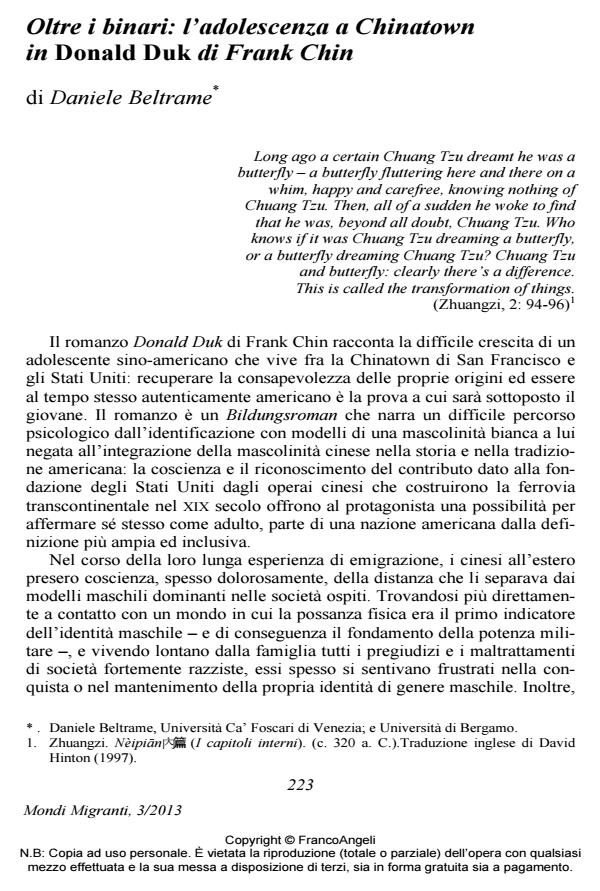Oltre i binari: l’adolescenza a Chinatown in Donald Duk di Frank Chin
Titolo Rivista MONDI MIGRANTI
Autori/Curatori Daniele Beltrame
Anno di pubblicazione 2014 Fascicolo 2013/3
Lingua Italiano Numero pagine 37 P. 223-259 Dimensione file 899 KB
DOI 10.3280/MM2013-003010
Il DOI è il codice a barre della proprietà intellettuale: per saperne di più
clicca qui
Qui sotto puoi vedere in anteprima la prima pagina di questo articolo.
Se questo articolo ti interessa, lo puoi acquistare (e scaricare in formato pdf) seguendo le facili indicazioni per acquistare il download credit. Acquista Download Credits per scaricare questo Articolo in formato PDF

FrancoAngeli è membro della Publishers International Linking Association, Inc (PILA), associazione indipendente e non profit per facilitare (attraverso i servizi tecnologici implementati da CrossRef.org) l’accesso degli studiosi ai contenuti digitali nelle pubblicazioni professionali e scientifiche.
Daniele Beltrame, Oltre i binari: l’adolescenza a Chinatown in Donald Duk di Frank Chin in "MONDI MIGRANTI" 3/2013, pp 223-259, DOI: 10.3280/MM2013-003010